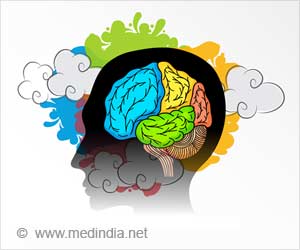High dose hormone treatment could mitigate post traumatic stress disorder (PTSD). A new study by Cohen and colleagues, appearing in the October 15th issue of Biological Psychiatry, reports on animal experimentss with corticosterone.
In the animal model, high doses of corticosterone prevented negative consequences of stress exposure, including increased startle response and behavioral freezing when exposed to reminders of the stress. However, low-dose corticosterone potentiated these responses.One of the complexities in understanding PTSD is the context-dependency of adaptation. In some situations, for example following a car accident in an otherwise secure community, one objective of treatment is to restore a sense of normalcy and control of one's life. Within this context, the high-dose corticosterone would seem to be the indicated treatment.
However, one could imagine scenarios where hypervigilance and heightened emotional reactivity could be adaptive, perhaps in a combat zone. In that case, the lower and more typical corticosterone levels might help soldiers adapt to the continuing risks of combat. But, people do not spend their lives in a single context.
"In the case of helping soldiers adjust to the stress of war, we have to think both short-term and long-term, to help soldiers adjust to combat, but also to help them return from combat to resume peacetime life. Thus, we need further guidance from animal research about how to help soldiers adjust flexibly across contexts, from the battlefield to the breakfast table," as explained by John H. Krystal, Editor of Biological Psychiatry and affiliated with both Yale University School of Medicine and the VA Connecticut Healthcare System.
Corresponding author Dr. Hagit Cohen concludes that, "single high-dose corticosteroid treatment may thus be worthy of clinical investigation as a possible avenue for early pharmacotherapeutic intervention in the acute phase, aimed at prevention of chronic stress-related disorders, such as PTSD. In this sense, it brings treatment of PTSD to a new era – an era of secondary prevention."
The article is titled "Early Post-Stressor Intervention with High-Dose Corticosterone Attenuates Posttraumatic Stress Response in an Animal Model of Posttraumatic Stress Disorder" and authored by Hagit Cohen, Michael A. Matar, Dan Buskila, Zeev Kaplan, and Joseph Zohar of Israel.
Advertisement
GPL







